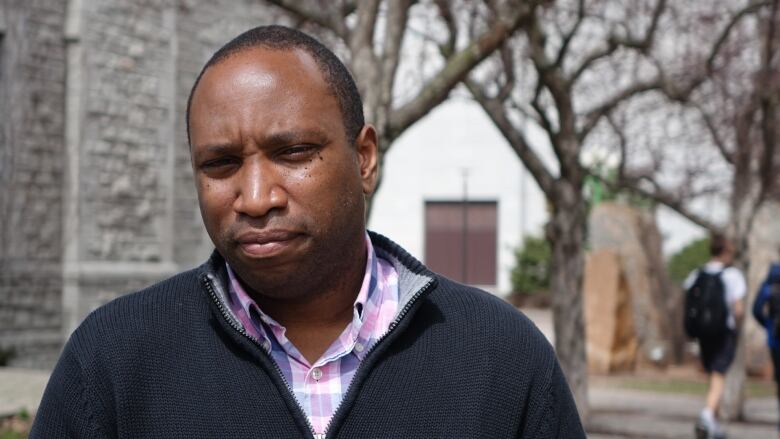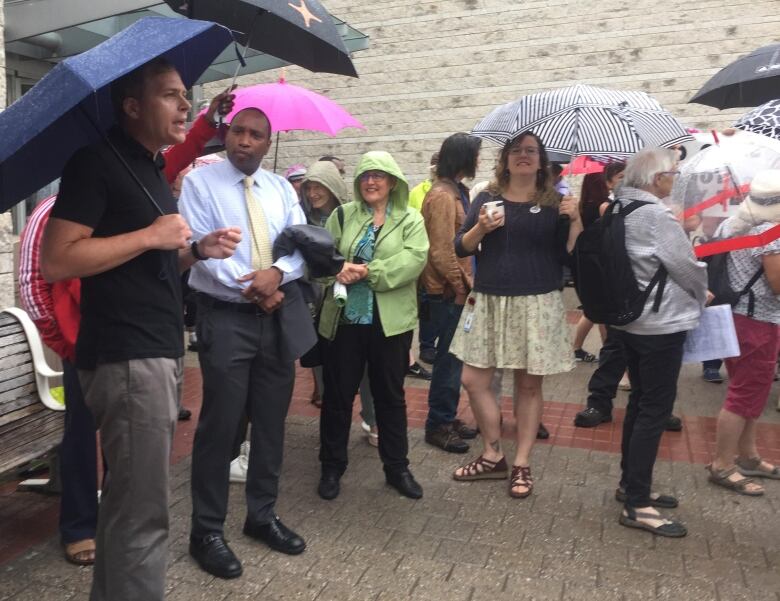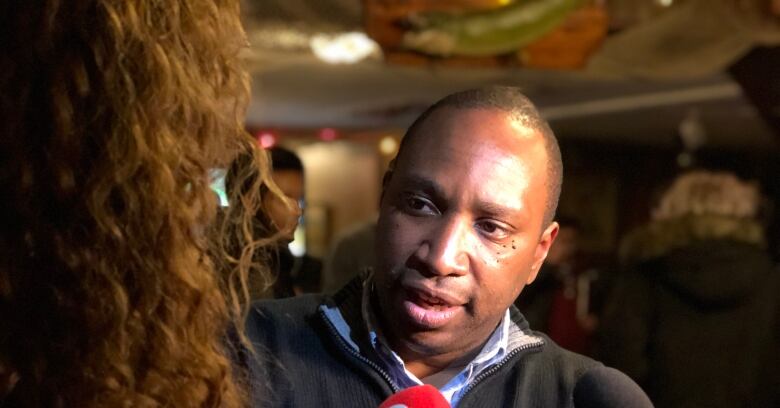City must tackle systemic racism at its roots, King says
Coun. Rawlson King appointed Ottawa's liaison for anti-racism and ethnocultural relations

This week'sappointment of Coun.Rawlson King asOttawa's liaison for anti-racism and ethnocultural relations could hardly have happened at a more momentous time.
For more than a week, protesters have taken to the streets of major cities in the United States and around the world to demand justice after the killing of George Floyd, a black man, by police in Minneapolis, Minn. On Friday afternoon, demonstrators will descend on theU.S. Embassy in Ottawa.
King, the city councillor for RideauRockcliffe and the first black person elected to Ottawa city council,spoke Wednesday to Robyn Bresnahan, host of CBC's Ottawa Morning. Their conversation has been edited for length.
How have you been affected by what you have been seeing and hearing in the last few days?
There's a lot of pain and anger.I share that pain and anger, but unfortunately, I really believe it was predictable. That'swhat happens when you have a tremendous amount of social inequality in a society. I think we're doing better in Canada in terms of our political institutions that really can accommodate change and dialogue. That's what's important about having this [liaison for anti-racism] position. We really need to act collectively to really disrupt systems that perpetuate racism. I'm really proud of the actions that have been taken by this council to address racism.
You sound buoyed by by the support that you're getting right now. But do you think that city hall has been complacent in dealing with racism?
I think we needed a push.When I was elected there was a lot of elation, especially in the black community, because there was finally representation around the table. Then, a month later, there was a lot of deflation because of a racist incident in my ward with a family having the N-word spray-painted on their garage door.
There should be equality in terms of employment,health, housingand economic development. We need greater education, but we also need systemic solutions.- Coun. Rawlson King
The community said we needed action after seeing that. But they acknowledged there most likely will always be these individual acts of racism. What's important is addressing systemic racism. There should be equality in terms of employment,health, housingand economic development. We need greater education, but we also need systemic solutions.
Who do you think needs to be educated?
Everybody. Everybody needs to have a fulsome conversation. The problem with the media and social media landscapeis that everybody is polarized. People are talking over each other rather than to one another.The idea will be to engage communities on a wider scalewith education campaigns to tell people about the real impact of racism in our community.

How do you bring people who might be on one side of that polarized debate, who think that every conversation that we have about racism is somehow virtue-signalling. How do you bring them into the conversation?
You start with the conversation itself. The real challenge is that we can't have meaningful conversations in 120 characters. It just doesn't work. Webuild community by talking with our neighbours and understanding their concerns and working towardconsensus.If we're going to take concrete steps toward a more equitable city then we must have meaningful conversations with those who are crying out, who experience these issues, who observeracial injustice and entrenched systemic inequality every day.We want that to be acknowledged. Then we want to move toward solutions. The conversation is key.
But is conversation enough? What about policy change?We were talking earlier about race-based data collection, which I know you have been pushing for, especially around COVID-19. What are some of the concrete steps oractions that you would like to see to address systemic racism across the city?
You're right, and that would be part of our objectives to ensure the policies that we have on the books are actually measured and monitored.That is a challenge. At the city of Ottawa wehave wonderful diversity policies on paper. There is obviously a goal to have a very diversified workforce. But we didn't have a policy tool to really measure the effectiveness of that, to ensure that the city is living up to those policies. If you don't measure, then you can't manage.

Earlier this week we heard from Ottawa's police chief, Peter Sloly. He reaffirmed his commitment to improve race relations between people of colour in thiscity and the police. What role do you think police should be playingin that conversation?
They need to be central to the conversation.And I think the good news is that our new police chief Peter Sloly is dedicated to that task. In the conversations I've had with the police service they have said that they want to be really highly involved with the anti-racism secretariat. They want to move forward with substantive goals around equity inclusion and diversity.
You said that these protests that are happening in the United States and in Canada are predictable. But does this feel different?Does this feel like a turning point for you?
I think in this country it is.The federal government is looking at investing in anti-black racism resources. We're having this discussion at the municipal level. We had this discussion with the previous provincial government.Are we where we want to be? No. But the reality is that that takes time. At least we have institutions that are amenable to change, whereas in the United States, we've seen 50 to 100 years of issues around inequality. We haven't really seen the measures that are needed to really enact change.
With files from CBC Radio's Ottawa Morning













_(720p).jpg)


 OFFICIAL HD MUSIC VIDEO.jpg)
.jpg)



























































































